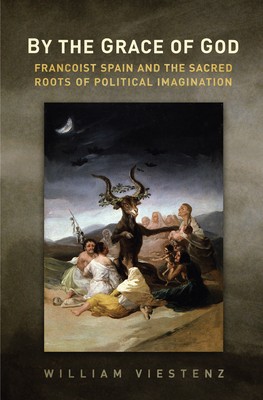
- We will send in 10–14 business days.
- Author: William R Viestenz
- Publisher: University of Toronto Press
- ISBN-10: 1442647574
- ISBN-13: 9781442647572
- Format: 14 x 22.1 x 2 cm, hardcover
- Language: English
- SAVE -10% with code: EXTRA
Reviews
Description
Though neither king nor priest, Spanish dictator Francisco Franco nevertheless conceptualized his right to sovereignty around a political theology in which national identity resembled a sacred cult. Using Franco's Spain and la España sagrada as a counterpoint to European secularity's own development, By the Grace of God is the first sustained analysis within Spanish cultural studies of the sacred as a political category and a tool for political organization.
William Viestenz shows how imagining national identity as a sacred absolute within a pluralistic, multicultural state leads to dictatorship, scapegoating, and exceptional violence. Using novels and poetry from the Catalan literary tradition and stalwarts of the Castilian canon, his analysis demonstrates that the sacred is a concept that spills over into key areas of secular political imagination.
By the Grace of God offers an original theory of the sacred that challenges our understanding of twentieth-century political thought.
EXTRA 10 % discount with code: EXTRA
The promotion ends in 10d.15:06:27
The discount code is valid when purchasing from 10 €. Discounts do not stack.
- Author: William R Viestenz
- Publisher: University of Toronto Press
- ISBN-10: 1442647574
- ISBN-13: 9781442647572
- Format: 14 x 22.1 x 2 cm, hardcover
- Language: English English
Though neither king nor priest, Spanish dictator Francisco Franco nevertheless conceptualized his right to sovereignty around a political theology in which national identity resembled a sacred cult. Using Franco's Spain and la España sagrada as a counterpoint to European secularity's own development, By the Grace of God is the first sustained analysis within Spanish cultural studies of the sacred as a political category and a tool for political organization.
William Viestenz shows how imagining national identity as a sacred absolute within a pluralistic, multicultural state leads to dictatorship, scapegoating, and exceptional violence. Using novels and poetry from the Catalan literary tradition and stalwarts of the Castilian canon, his analysis demonstrates that the sacred is a concept that spills over into key areas of secular political imagination.
By the Grace of God offers an original theory of the sacred that challenges our understanding of twentieth-century political thought.


Reviews